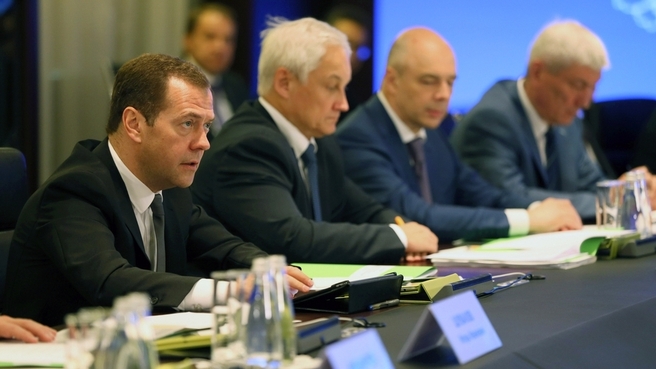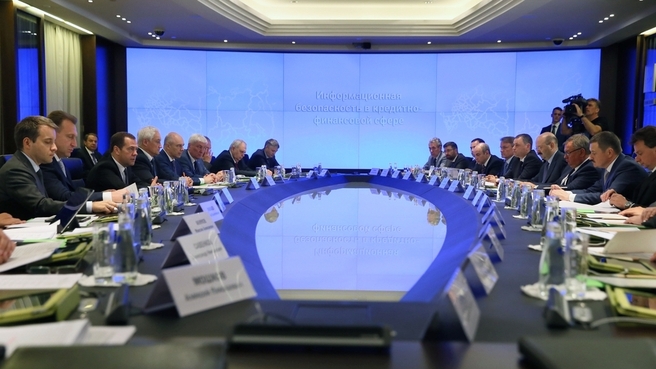Dmitry Medvedev: "IT technologies have become an inalienable part of nearly all monetary transactions. There seems to be no alternative available, and hence information security, as well as security in the financial sector in general, is an issue of concern for everyone. According to some estimates, global losses from cybercrime have reached about $500 billion".
Excepts from Dmitry Medvedev’s opening remarks:
Protecting assets is the key area of concern in modern monetary transactions, especially during the transition from cash to electronic money. We live in an age of a large-scale transition to e-payments, and there’s no alternative to it.
Cyber criminals attack not only individual e-wallets, but also elements of the monetary system and accounts held by banks, financial companies and the state. They have good knowledge of software vulnerabilities. Software products are developed by humans, and there’s always an imperfection that they can take advantage of. Occasionally, they capitalise on the gullibility of ordinary people. These criminals are becoming increasingly active, and the number of such crimes is on the rise everywhere.
Hackers often attack remote services provided online or by mobile operators. Today, bank robberies are pulled off unlike it was done for centuries, not by armed robbers, but by someone using a tablet or a computer. Often, hackers not only steal money, but also thwart important events or programmes, thus wreaking havoc. They pose a transnational threat. An estimated half a trillion dollars are lost worldwide to cybercrime. Not all losses are recorded or reported.
The damage caused by this type of crime in Russia is also increasing. Clearly, we don’t have enough capabilities or experience to counter these attacks. Most break-ins are detected after the funds have been stolen, or a particular system blocked. Tens of thousands of unauthorised e-banking transactions are reported. Fighting such crimes alone is almost impossible.
Joint efforts to combat e-crime are needed to mitigate the risks of cyber threats. This problem should be approached systematically. There is a need to create and fine-tune a mechanism to counter it both at the level of using proper technical equipment, building a proper infrastructure and, of course, developing the corresponding legal framework, which is also a challenge, because even providing a description of modern technology and processes using proper legal language may be a difficult task.
The Government and the Bank of Russia have taken a number of steps in this area. In particular, they have set up special centres for monitoring and responding to computer attacks, and drafted an industry standard.
Sberbank, our host today, has its own approaches and solutions.














